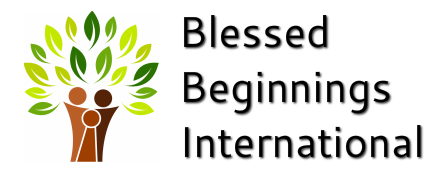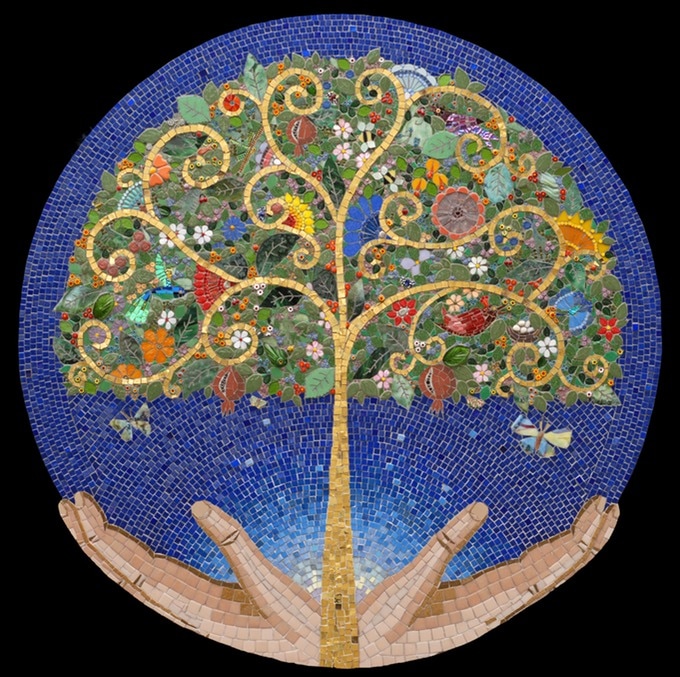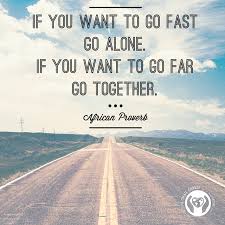|
Four years ago, my family shifted to India because of my husband's work. I moved with two small children and recently had left my job as a nurse at a hospital in America. The more women I met, the more Hindi I learned, the more the questions were the same. How do I have the best pregnancy? How do I have the a normal delivery? How do I breastfeed my baby? Although I am a nurse (Bachelor's of Science), I decided to seek out specialized training in childbirth, lactation and public health. I did not realize at the time I was moving to a country of 27 million births per year and the largest burden of death in infant mortality in the world. Locally, there are many hospitals, nursing homes, clinics, but the experiences around me continue to be the same: birth by C-section followed by a difficult breastfeeding journey. In my little corner of the world, I am the only lactation consultant available for over 700,000 people. I was looking forward to attending a conference that brought people from all corners of the world together to reflect, discuss, present, dream and collaborate.
When I arrived in Mumbai for the Human Rights in Childbirth conference, I was not sure what the event would be like. The first day's theme was attempting to reflect on the voice of the woman. What is mother centered, baby centered, family centered care? What is an informed choice? What would giving the power back to the mother for choices in childbirth and breastfeeding look like? There were many experienced panel members who gave insight to this topic. With the focus being on a multi-specialty approach we heard from doctors, midwives, advocates, nurses, business people and many more. Each day was filled with many voices, many presentations, and much information. The heart of the conference though was addressing the infant and mortality rates in India and providing steps to work together better to see that improve. As the Lancet Series for Maternal Health in Asia was released, we heard why many times in the world maternity care is either "too much too soon" or "too little too late." By the end of the second day, we all felt the tension of, "So now what?" The third day involved many presentations surrounding what do we do next. We heard from many practitioners working in different sectors in India and around the world. Bashi Kumar-Hazard ended our time by reminding us to remember "that many days our work feels like drops in a bucket, but one woman one baby one family matters." She challenged us to remember our work is and will make a difference in the world. Closing together on the last day, we attempted to come up with an action plan moving together. As I sat there in a room of professionals from different sectors and different countries, I was reminded of the privilege it was for four days to live in an ivory tower. I was encouraged to hear from doctors, nurses, midwives and many others working around the world making a difference. As I thought about my work and others work in maternal child health, I was reminded that our work is like a mosaic. Each of us small tile pieces alone, sometimes rough and unpolished but an integral part of the bigger picture. If all our smaller pieces come together, then we can step back and see the beautiful work of art, a mosaic. We need each other. We need doctors. We need lactation consultants. We need nurses. We need midwives. We need people working across many sectors working together for a bigger change. Many people around the world can form a beautiful mosaic for families everywhere.
1 Comment
As a lactation specialist, I understand that we need to use evidenced based research to inform and guide practice everyday. Although each mom and baby dyad I see is its own independent unit, there is a bigger effect on the greater national and global society of early initiation of breastfeeding within the first hour and exclusive breastfeeding for the first 6 months. Breastfeeding is both a personal choice and a public health initiative. Early this year, the Lancet released a series about the impact of breastfeeding globally. One of the most shocking statistics states, “The scaling up of breastfeeding can prevent an estimated 823,000 child deaths every year” (Lancet BF Series, Jan 30 2016). Recently UNICEF also shared this statistic, "The longer breastfeeding is delayed, the higher the risk of death in the first month of life. Delaying breastfeeding by 2-23 hours after birth increases the risk of dying in the first 28 days of life by 40 per cent. Delaying it by 24 hours or more increases that risk to 80 per cent" (http://www.unicef.org/media/media_92038.html). Breastfeeding, therefore saves lives and gives babies the best start to life.
This is not the current situation in my local practice. Each week, I visit maternity centres and complete home visits in my local community. Very few women are attempting to breastfeeding in the first hour, let alone the first days. Even if a mother's wish is to exclusively breastfeed, her child will almost definitely be given top feed while in the hospital. After returning back home after 24 to 36 hours, she finds herself without confidence, unable to latch her own child, and believing that her milk is not enough. This is an epidemic problem throughout India. Women face multiple barriers when it comes to breastfeeding their own child in the first hour and first days of life. Whether she is lacking in knowledge and confidence herself or hearing voices from family members and medical staff that her milk is not enough, her nipples are too small too big or strange, or that she is too tired to eat, a mother must fight for the opportunity to give her baby the best start. So with the knowledge that breastfeeding with mother's own milk in the first hours and days is the best start for the baby, but the current problem of top feed being given in all levels of society, where do we go from here? The Lancet study concludes, “Not breastfeeding is associated with lower intelligence and economic losses of about $302 billion annually or 49% of world gross national income. Breastfeeding provides short-term and long-term health and economic and environmental advantages to children, women and society. To realize these gains, political support and financial investment are needed to protect, promote and support breastfeeding” (Lancet BF Series, Jan 30 2016). How do we protect, promote and support breastfeeding better here in India? Dr. Arun Gupta from BPNI shares, “Breastfeeding and its success depends on hormonal control particularly the flow of the mother’s milk which depends on her state of mind. If there is any doubt planted in her mind about her ability to lactate, it is unlikely that she will succeed. Therefore health workers or care providers have to play a vital role in building up the confidence of new mothers. However, such support is rarely forthcoming. If a woman complains of “not enough milk” she is usually asked to buy a formula feed rather than helped to gain confidence” (Gupta "Manipulation by Assistance: Undermining Breastfeeding,” Sept 6 2008). From health workers to family members, we need to help our mothers our mothers succeed. Confidence building is the best way to support a mother in breastfeeding. Most times, her milk is more than enough. Also, there needs to be scaling up of the breastfeeding support profession. With skilled lactation care, women will receive proper guidance and support in the beginning days and when challenges arrive. Changes are happening in India, but I hope we can look back in five and ten years and see a drastic transformation of the breastfeeding rates in India to ensure a better future for all children. Dana Hardy
RN, BSc, MA Lactation Specialist and Childbirth Educator (CAPPA, LEC, BPNI) The month of July was a busy travel time for me, but I had the privilege of attending ILCA's 2016 Conference in Chicago. The theme was, "Celebrating Baby Friendly in the Hospital and Beyond: Helping Families Thrive Worldwide." I work in a city where I am the only official lactation professional, so when I walked in a room of 900 lactation professionals I was in shock. It was an immediate moment of camaraderie. After working in an under-served region of the world for the past 4 years, I was amazed to hear stories of success and triumph. I knew that I would be drinking from a proverbial knowledge and networking firehouse. I was able to make many connections, grow in professional knowledge, and dream about what could be for the lactation profession in India. After a month back in India, I have been thinking about how to make such a conference more readily accessible to those working in the Asian context. My fellow co-workers in India, Pakistan, Thailand, China, and so on deserve an opportunity to have mutual encouragement at such a conference. Working in the lactation profession is both a rewarding and exhausting career. We believe that breastfeeding both saves and changes lives. We read research and are reminded that with breastfeeding in the first hour and exclusively for 6 months 800,000 children's' lives could be saved (Lancet Study, 2016). So, how do we gather together to be refreshed by knowledge and networking and commit ourselves again to the cause that breastfeeding saves lives. I feel that the solution to this dilemma is partnership. Without collaboration in all contexts, we can only go so far alone. An African proverb states, "If you want to go fast, go alone. If you want to go far, go together." I am a person who likes to make things happen, and sometimes I believe the lie that working with others slows me down. Each year I am reminded that team, teamwork, collaboration matters. So, I look forward to attending more breastfeeding conferences in years to come and sharing stories of working together. So, will you join me? May this giving drive provide resources for BPNI...more lactation counselors throughout India will prove very helpful and ultimately change lives.
https://www.globalgiving.org/projects/help-create-2000-breastfeeding-counselors-in-india/ This year an important study was released concerning the global implications of breastfeeding. According to the study, 800,000 lives can be saved each year if babies are breastfed in the first hour and exclusively for 6 months. Breastfeeding saves lives. Breastfeeding changes lives.
http://library.fora.tv/2016/01/29/the_lancet_breastfeeding_series_global_launch |
Dana Hardy, Founder of Blessed BeginningsI will keep you up to date on the most recent research and evidence based practice. This will be a place to find excellent information and support. Archives
March 2017
Categories |
|
Site powered by Weebly. Managed by Namecheap
Copyright 2016 |



 RSS Feed
RSS Feed